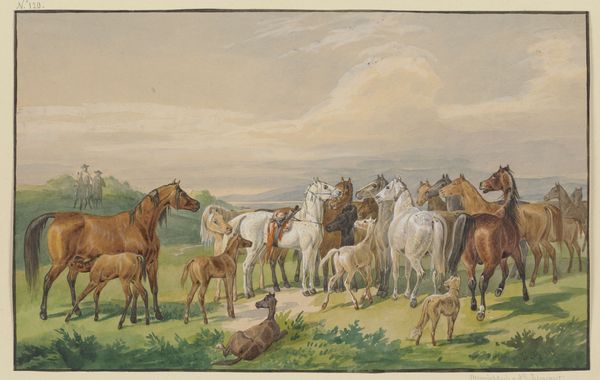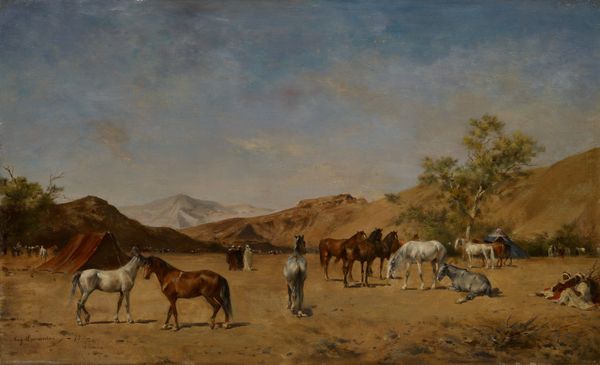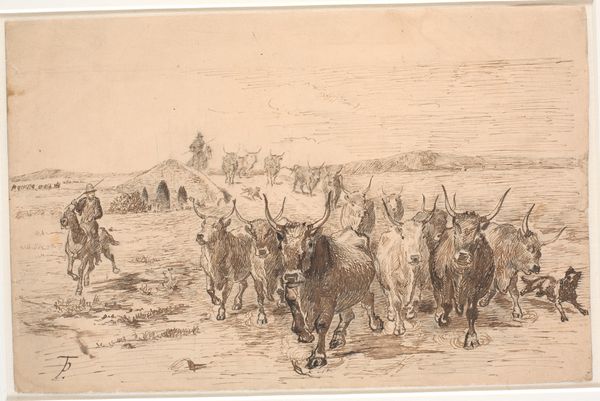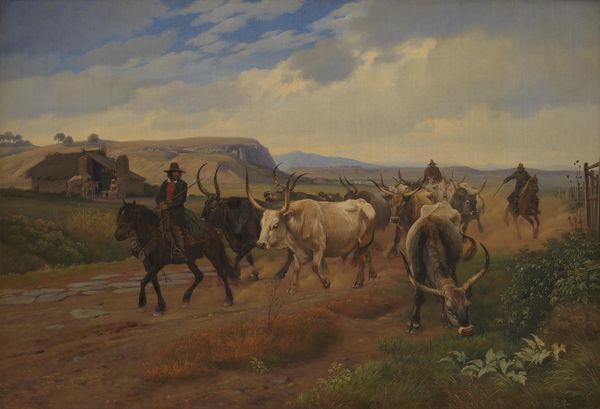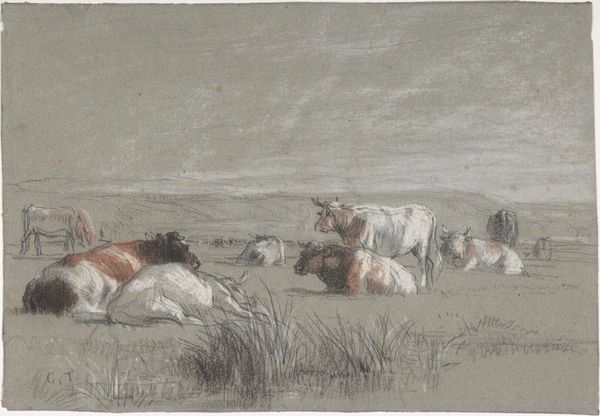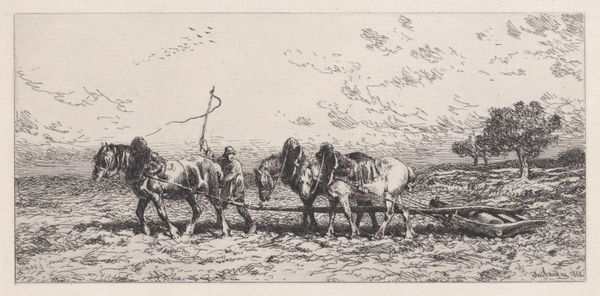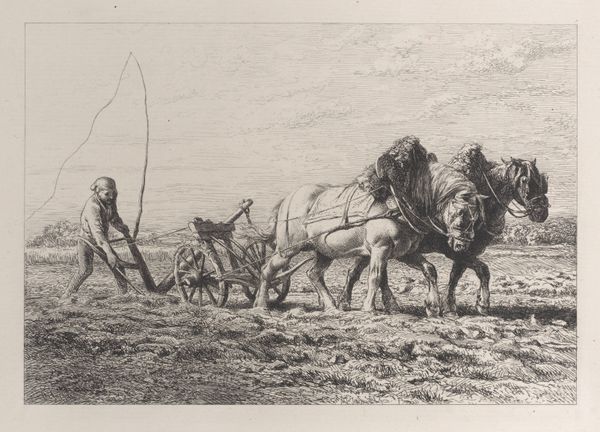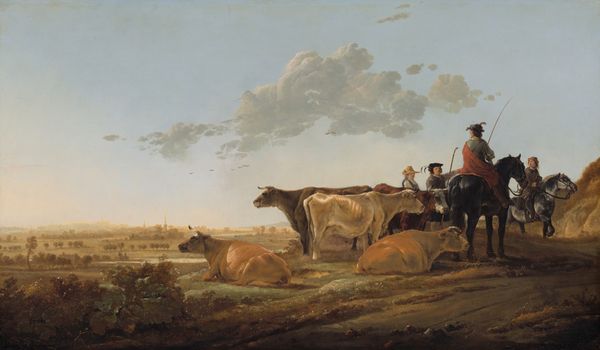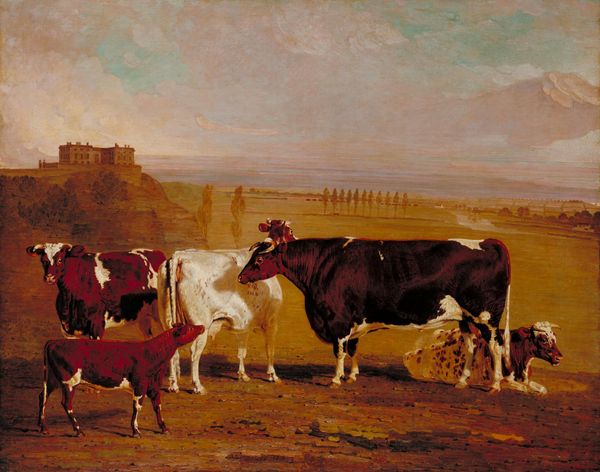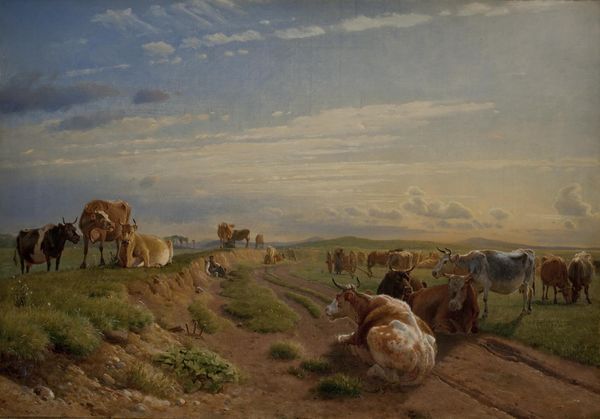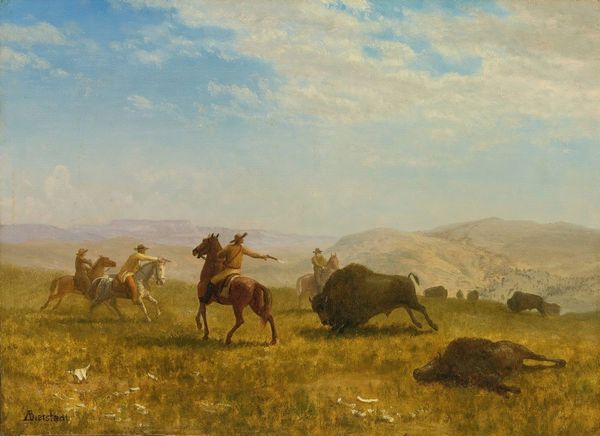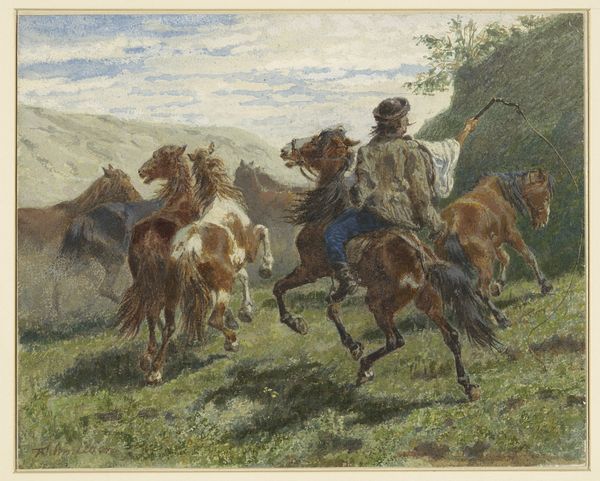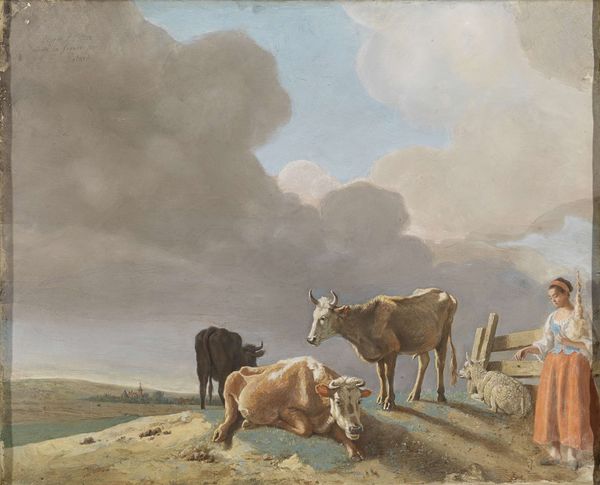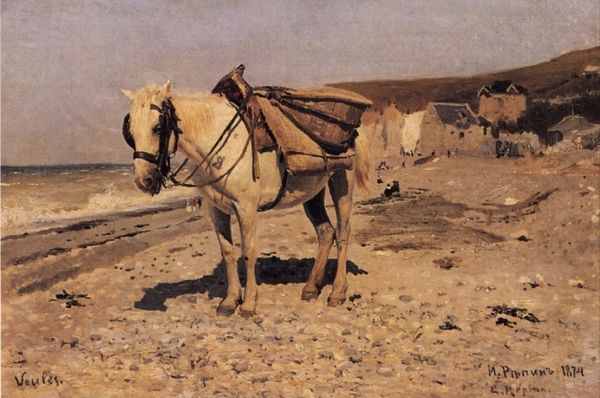
painting, plein-air, watercolor
#
painting
#
impressionism
#
plein-air
#
landscape
#
oil painting
#
watercolor
#
genre-painting
#
watercolor
#
realism
Copyright: Public domain
Editor: So, here we have "Donkeys in the Midi," painted by Eugène Burnand in 1873. It’s a watercolor painting depicting a line of donkeys, one carrying a young rider, making their way along a rise in the landscape. I immediately notice the light; it makes the scene feel peaceful and perhaps a bit nostalgic. What do you see when you look at it? Curator: It’s interesting that you say “nostalgic.” Notice how Burnand, though working during the rise of Impressionism, returns to an almost pre-industrial pastoral image. Donkeys, of course, are ancient beasts of burden. What does it tell us that in 1873, an artist highlights this very traditional scene? Isn't it a commentary on the changing face of labour and rural life, capturing a way of life that was already beginning to fade? Editor: That's fascinating! It adds a layer of complexity to the painting beyond the simple scene of donkeys. I hadn’t considered that it was a deliberate choice to portray them. It does seem at odds with other trends at that time. Curator: Exactly. Look at how the lone donkey leads the pack. Perhaps the animal is a symbol, deeply embedded in our cultural memory. What might the donkey, in its inherent stubbornness and simple nature, represent to a society undergoing massive change? Also consider, what is the cultural significance of the lone boy sitting at the back of the pack? Is this depiction related to his own future and what role he will fulfill in this new changing environment? Editor: Wow, that gives me a lot to think about! It's more than just a landscape painting; it's a statement about a moment in time and cultural transition. Thanks for the insights. Curator: My pleasure! It’s precisely in these everyday images that we often find the richest layers of cultural meaning. We just have to look for it.
Comments
No comments
Be the first to comment and join the conversation on the ultimate creative platform.
